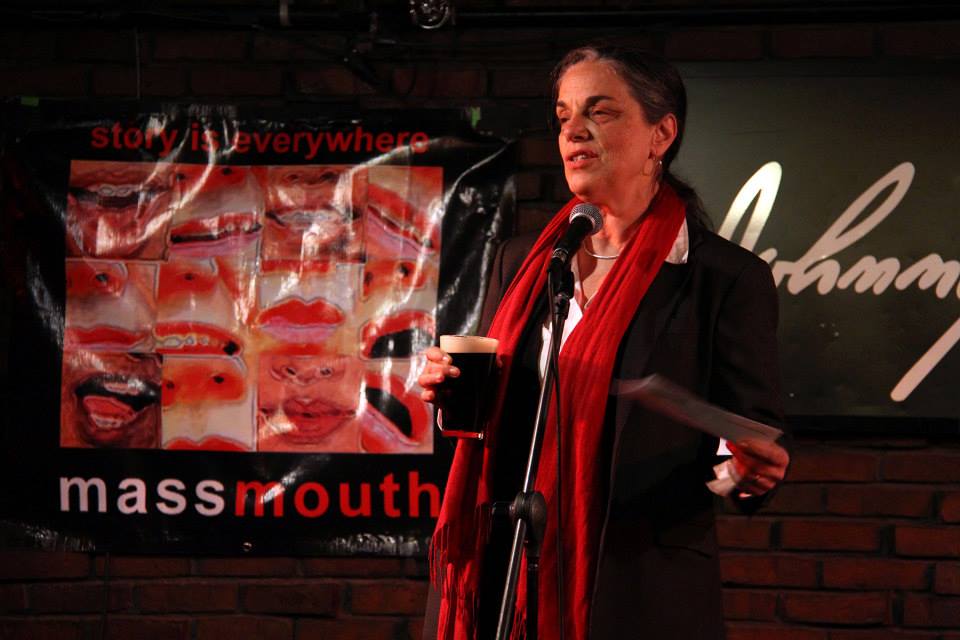Norah Dooley, the accomplished storyteller, author and executive director of MassMouth, has entertained us with her intricate and heartwarming tales for 28 years now.
In addition, Dooley has worked as a passionate social activist, bringing awareness and support to Boston’s large homeless community. Even to a career storyteller, she acknowledges that homelessness is anything but a fairy tale. However, she remains optimistic.
“Oh, absolutely!” Dooley says enthusiastically when asked if she thinks homelessness will ever be non-existent. “Do you have any idea how many empty apartments and empty square-footage there is in the city of Boston? In this city, there’s no reason for anyone to be on the street, without a place to lay their head and keep their things safe and know they’re safe and warm.”
Dooley has recently started collaborating with the Boston Homelessness Speakers’ Bureau, an organization dedicated to assisting those who have been homeless or those who are currently homeless to tell the stories in a powerful way that grips the attention of the public and makes the struggle of homelessness more real.
“[The organization] really fits our basic philosophy and also our mission, which is to help people and show respect for each other,” says Dooley. “It really helps to enable a more civil society if we know each other’s stories. It helps us become more compassionate and to be thoughtful in a way that will make our society a better place.”
Dooley reflects on the time when she became involved in activism in Boston. “I became interested in the homelessness issue when I realized how gentrification, and even our family’s small part in it, was hurting our neighbors and those around us,” says Dooley.
Even with her calm, collected demeanor, Dooley voices her frustration with how the city and the rest of the country in general has dealt with homelessness. “Homelessness has persisted throughout the decades because we, as a culture, have put profit over people,” she says in a follow up discussion. Dooley ultimately attributes the overshadowing of homelessness to society’s vulnerability. “I think the reason why people don’t want to look at this problem of homelessness and want to make panhandling illegal is because it makes them think about how close they are to being in the same situation. They don’t want that reminder out there that their comfort comes at a price and that their comfort isn’t a permanent installation,” Dooley says. “You’re just as expendable when you’re in the middle of the middle as you are when you’re at the bottom of the bottom.”
Dooley also took time to call upon Mayor Walsh to live in the shoes of the city’s homeless. “If Mayor Walsh wanted to do something interesting, I would like to see him spend a week living in a shelter and going to work from a shelter. That would be interesting. Then he would know.”
With everything she has accomplished, in both activism and the cultural arts, Dooley remains modest and hopeful for the future, acknowledging that there is a lot more work to be done. “I really cannot say that I have done anything significant to help people who are homeless, but I am always looking for an opportunity to do so. I cannot say that I am a huge advocate or that I have done enough. I will not feel that enough has been done until homelessness is taken off the table of social ills that people must struggle with.”

Leave a Reply
You must be logged in to post a comment.